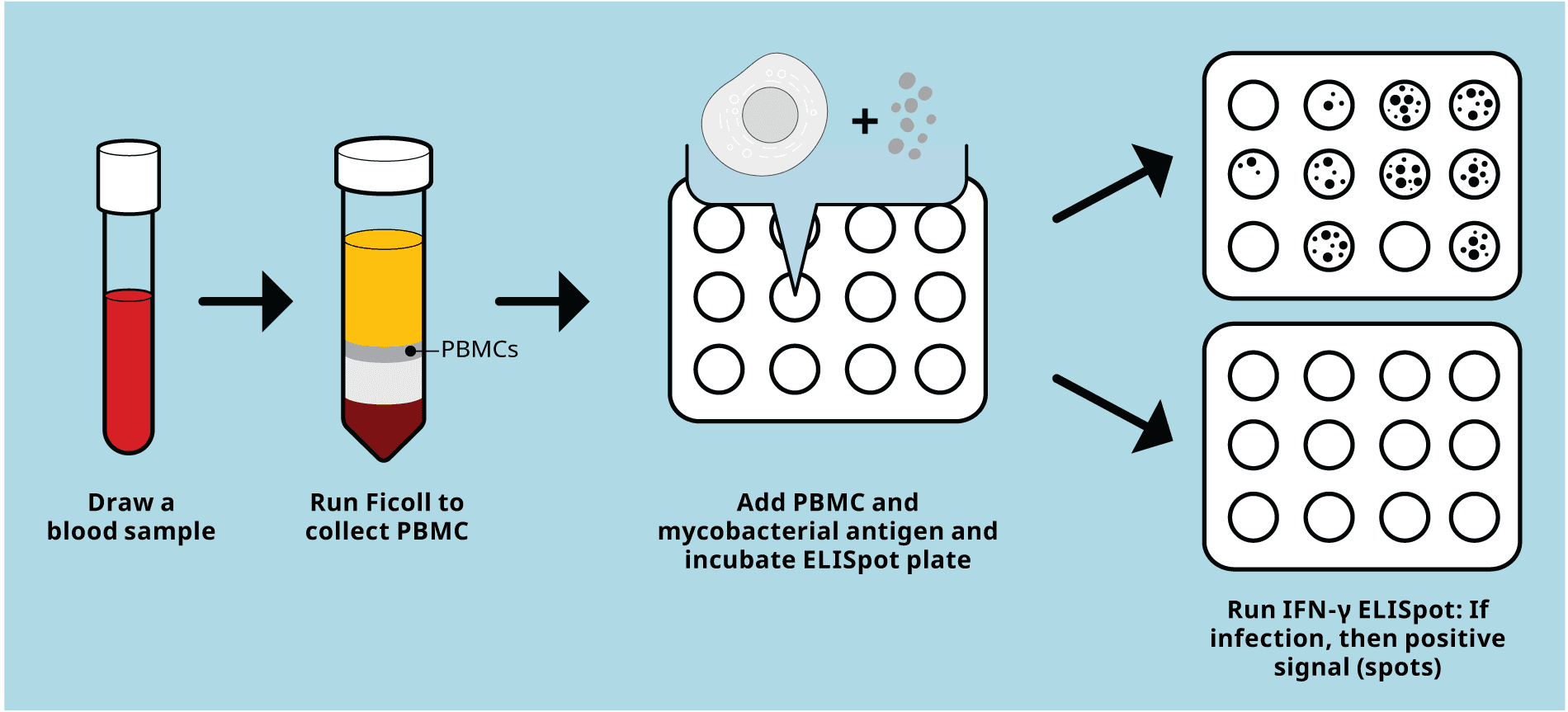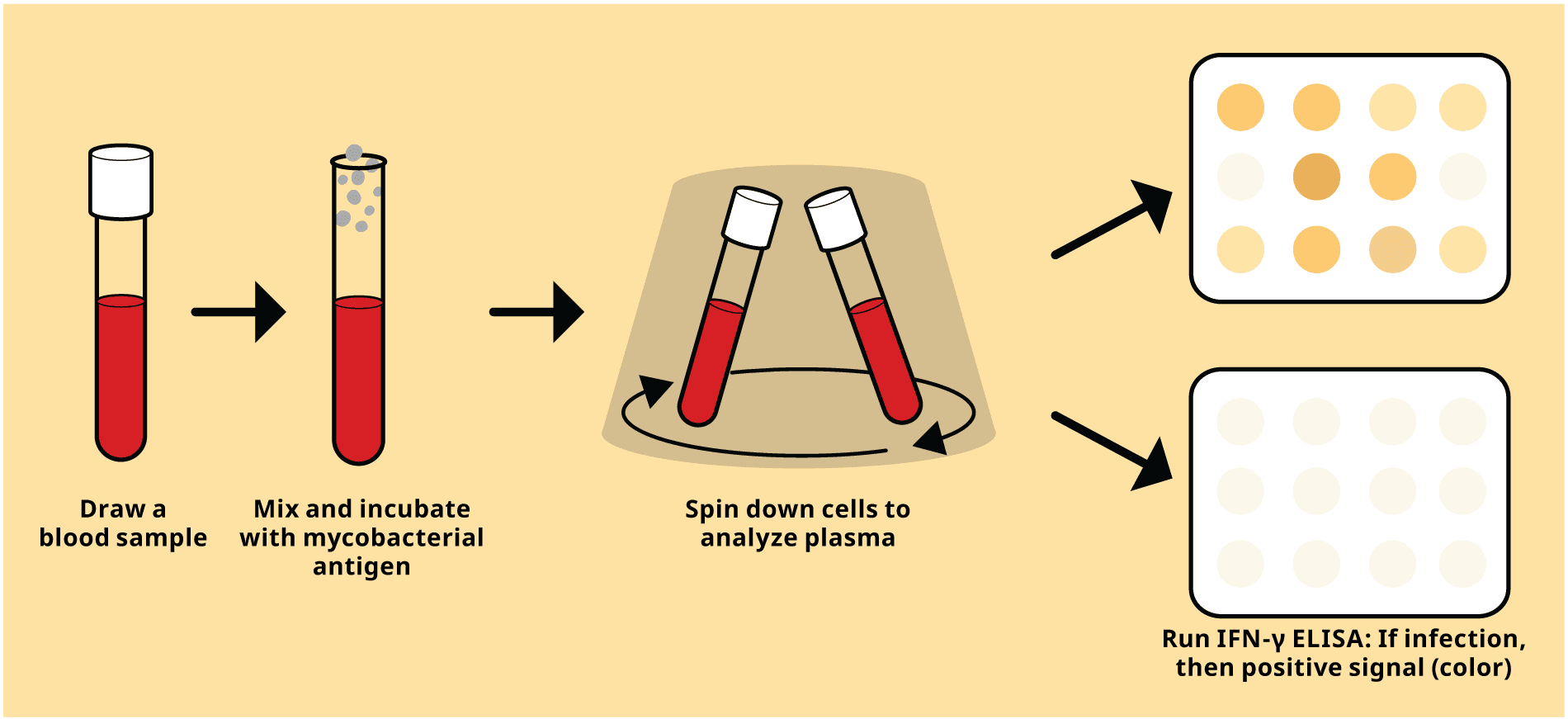
ELISpot vs ELISA: Superior sensitivity in TB diagnostics
Published: October 28, 2024
Updated: February 27, 2025
3 minute read
Authored by: Jens Gertow
Tuberculosis (TB), caused by Mycobacterium tuberculosis, is a bacterial infection that affects the respiratory system and can spread throughout the body. Early diagnosis is crucial to prevent the spread of the disease and initiate timely treatment.
ELISpot is an extremely sensitive immunoassay performed in a 96-well plate format to quantify cytokine-secreting cells. In TB diagnosis, PBMCs are stimulated with antigens ESAT-6 and CFP-10. These antigens trigger the production of the cytokine IFN-γ (interferon-gamma) by TB-specific T cells, and after the addition of a detection antibody and a precipitating substrate, each resulting spot represents an individual TB-specific T cell that secretes IFN-γ. As such, ELISpot in TB diagnosis is a form of Interferon-gamma Release Assay (IGRA). These kinds of diagnostic IGRAs can also be based on ELISA.
M. tuberculosis hide in lung granulomas
We prefer ELISpot over ELISA
Both ELISpot and ELISA are immunological assays used to measure specific immune responses. Many healthcare providers are realizing the advantage of both types of IGRA compared to the classical tuberculin tests (TST), as TST can produce false positive results in individuals who have received the Bacillus Calmette-Guérin (BCG) vaccine. Generally, we prefer the ELISpot-based IGRAs over the ELISA-based ones. Here follows some key differences between them.
ELISpot-based IGRAs are more sensitive
An ELISpot assay is always more sensitive than ELISA. It can detect a lower concentration of the analyte IFN-γ since it’s captured upon secretion, making it suitable for diagnosing infections at an earlier stage.
ELISpot is also more sensitive because it allows for single-cell analysis. This means that you determine the frequency of antigen-specific T cells that are secreting a particular cytokine (in this case IFN-γ), providing detailed information about the immune response. The assay principle allows the measurement of secreted cytokines directly – immediately upon secretion and throughout the entire stimulation process – providing a more specific assessment of the immune response without the interference of other factors.
ELISA-based IGRAs are simpler
ELISA is a widely established and relatively simple assay using serum or plasma samples instead of living cells as in ELISpot. ELISA can therefore be quite easily automated and made more cost-effective than ELISpot, making the assay more practical for some high-throughput screening.
ELISA-based IGRAs are indeed popular, but what good is a slightly higher throughput if you risk missing positive cases? ELISpot exhibits higher sensitivity and specificity, enabling the detection of low-frequency antigen-specific T cells. This is particularly advantageous in TB diagnosis, where early detection is crucial – and this is the reason why ELISpot is preferred over ELISA for TB diagnostics.
Veterinary TB diagnostics
Humans aren’t the only ones who suffer from TB, but also live stock and wild-life. For example, our collaborators Michele Miller and Sven Parsons at Stellenbosch University have utilized our equine IFN-γ ELISA kits to diagnose TB in rhinos (Yes! Rhinos and horses are related enough for our antibody pair to cross-react). Read their story here.


